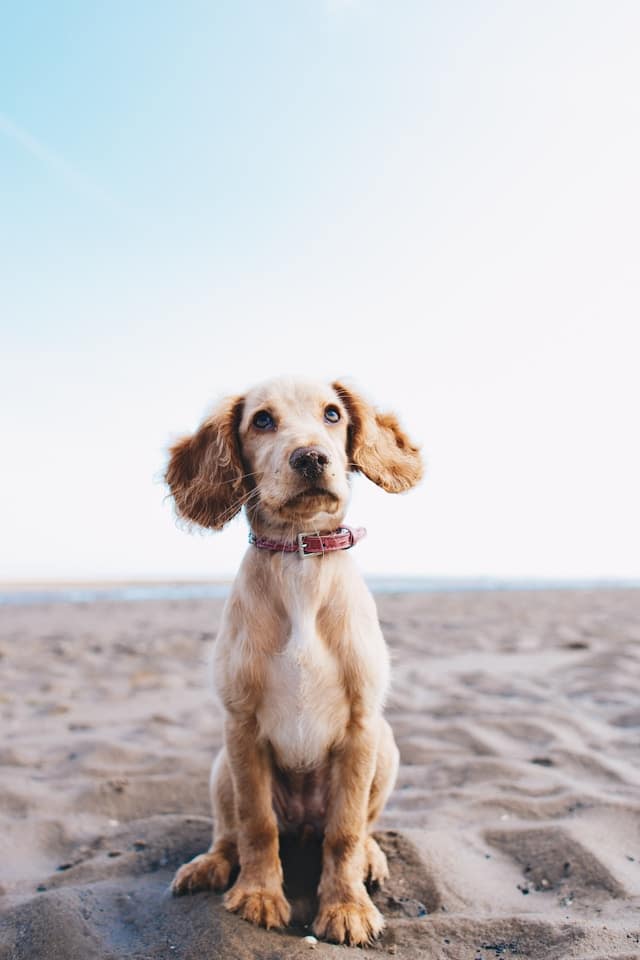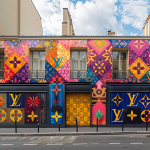As pet owners, you undoubtedly adore your dogs. They’re not just pets, they’re family. But there’s one aspect of your loving relationship that might cause distress – your dog’s fear of fireworks. Fireworks are loud, sudden, and unpredictable, which can trigger extreme anxiety in dogs. The good news is that there are effective ways to help your dog overcome this fear. This article will explore the most effective strategies to desensitize your dog to fireworks and make those colorful celebrations less of a fright for your furry friend.
Understanding Your Dog’s Fear of Fireworks
Before tackling the issue head-on, it’s important to understand why dogs fear fireworks. It all boils down to their acute sense of hearing. Dogs have far more sensitive hearing than humans, meaning they can hear sounds at a much higher frequency and from a greater distance.
A lire en complément : What are the Optimal Light Conditions for a Russian Tortoise Habitat?
Fireworks produce loud, explosive noises that can be terrifying to dogs. This fear can manifest in a variety of ways, such as hiding, shaking, or trying to escape. Knowing what triggers this fear will help you devise an effective training strategy.
Gradual Desensitization
Gradual desensitization is one of the best and most effective ways to help your dog handle their fear of fireworks. This process involves exposing your dog to the sounds that frighten them in a controlled and gentle manner until they grow accustomed to them.
Avez-vous vu cela : How to Create a Recovery Plan for an Overweight Beagle?
To start, play a recording of fireworks at a low volume for a short period of time. During this time, engage your dog in their favorite activity. This could be playing fetch, belly rubs, or even feeding them their favorite treat. The goal is to distract them from the sound and associate it with positive experiences.
Over time, gradually increase the volume and duration of the fireworks sounds. If at any point your dog starts to exhibit signs of fear or anxiety, reduce the volume or stop the session altogether. The key is patience and consistency. It might take weeks or even months, but with time, your dog should start to become less reactive to the sounds of fireworks.
Counter conditioning
While desensitization focuses on reducing your dog’s negative reaction to fireworks, counter conditioning goes one step further. It aims to replace the fear response with a positive one.
For instance, as you play the fireworks sound, instead of merely distracting your dog, you could train them to perform a specific action. This could be sitting, rolling over, or fetching a toy. Reward them for this behavior with treats or praises.
Over time, your dog will associate the sound of fireworks with performing a fun activity and receiving a reward, which can significantly reduce their fear and anxiety.
Creating a Safe Space
Another effective strategy to help your dog deal with the fear of fireworks is creating a safe space. This could be their favorite spot in your home where they feel comfortable and secure. It could be a specific room, their crate, or even under a piece of furniture.
Whenever fireworks are going off, lead your dog to this space and stay with them, providing comfort and reassurance. You can also try to muffle the sound of fireworks by closing windows and doors, and playing white noise or calming music.
Professional Assistance
If your dog’s fear of fireworks is severe, it might be time to seek professional help. A professional dog trainer or a veterinary behaviorist can provide personalized training strategies and interventions. They might also suggest anxiety medications or therapeutic products like anxiety wraps or pheromone diffusers.
Remember, your goal is not to completely eliminate your dog’s fear, but to reduce it to a manageable level so that they can remain calm during fireworks. It will take time and patience, but your efforts can greatly improve your dog’s quality of life. After all, you want the best for your canine companion, and helping them overcome their fears is certainly a step in the right direction.
Utilizing Pet Insurance and Noise Phobia Therapy
Investing in pet insurance can be beneficial as it often covers behavioral treatments such as noise phobia therapy. Noise phobia in dogs is an extreme fear of loud noises, like the sound of fireworks, leading to the dog’s desire to escape. This can put your dogs in danger, and they may even hurt themselves in the process.
Pet insurance allows you to seek professional help without worrying about the financial aspect. Some insurance plans cover consultations with veterinary behaviorists and the cost of therapeutic products. So, it’s a good idea to review your pet insurance policy and understand the kind of support it offers.
Noise phobia therapy, on the other hand, is a specialized form of treatment that targets your dog’s fear of loud sounds. It involves a combination of desensitization and counterconditioning techniques, custom-tailored to your dog’s specific needs. It might include playing recorded sounds of fireworks at a low level and gradually increasing the volume while engaging your dog in positive activities.
Therapists might also introduce calming methods like massage, deep-pressure therapy, or even use of calming scents. This therapy aims to help your dog associate the sound of fireworks with positive experiences rather than fear, thus reducing their anxiety.
Conclusion: It’s About the Journey, Not the Destination
Helping your dog overcome their fear of fireworks is not an overnight process. It requires time, patience, and a lot of understanding. Remember, the goal is not to remove the fear altogether, but to reduce it to a manageable level. Your dog may still show signs of being scared, but with proper training and tools, they can learn to stay calm.
It’s crucial to take cues from your dog throughout this process. If they’re showing signs of distress, it’s okay to slow down and reassess your approach. Your dog’s comfort should always come first.
Take things one day at a time. Some days, your dog might show significant progress, while on others, they might regress a bit. It’s all part of the journey. Celebrate the small victories and don’t get discouraged by setbacks.
Training your dog to remain calm during fireworks is a labor of love. It might be difficult at times, but the reward is worth it. Imagine a future where your dog can enjoy these colorful explosions in the sky without fear. That’s the future you’re working towards.
Lastly, don’t be afraid to seek help if it becomes too overwhelming. Professional dog trainers and veterinary behaviorists are there for a reason. They can provide valuable insights and training techniques that can greatly aid your journey.
Remember, you’re not alone in this. Countless dog owners have successfully helped their dogs overcome their fear of fireworks. With persistence and patience, you too can help your dog overcome their fireworks anxiety.











